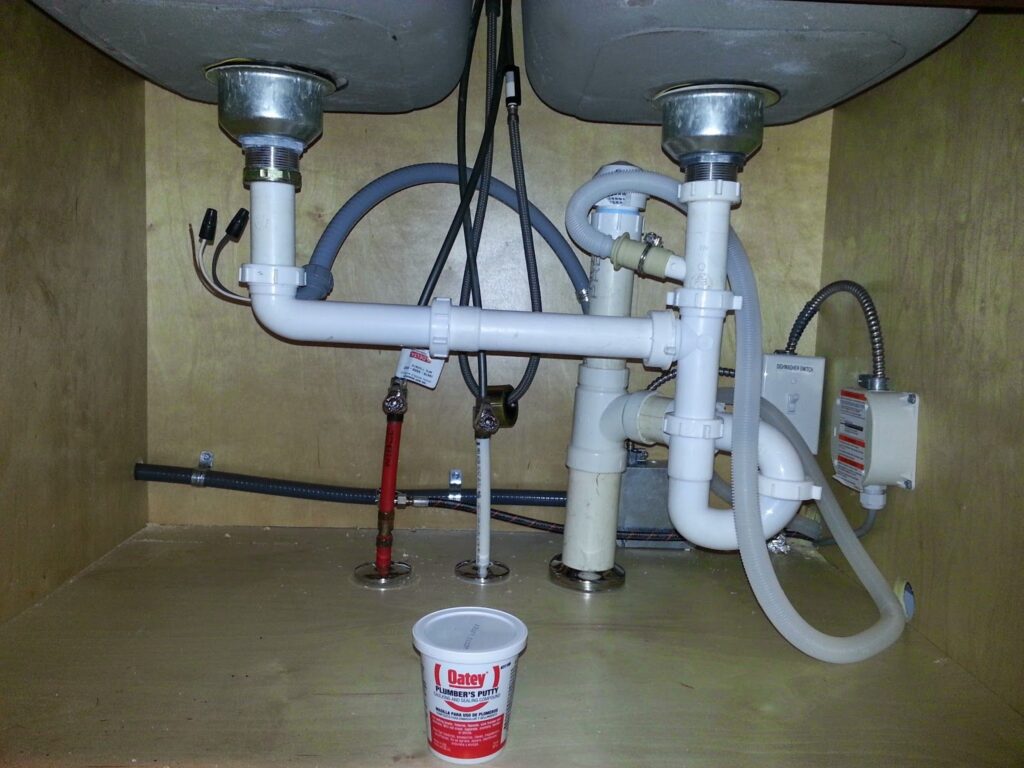
Navigating the World of Kitchen Plumbing: A Comprehensive Guide
The kitchen, often considered the heart of the home, relies heavily on its kitchen plumbing system. From washing dishes to preparing meals, a functional and efficient plumbing setup is crucial. However, kitchen plumbing is a complex network of pipes, drains, and fixtures, susceptible to various issues. This guide provides a comprehensive overview of kitchen plumbing, covering common problems, maintenance tips, and when to call a professional. Understanding the basics of your kitchen plumbing can save you time, money, and the frustration of dealing with unexpected plumbing emergencies.
Understanding Your Kitchen Plumbing System
Before diving into common problems and solutions, it’s important to understand the components of a typical kitchen plumbing system. This includes:
- Supply Lines: These pipes deliver fresh water to your kitchen faucet and appliances like dishwashers and refrigerators.
- Drain Lines: These pipes carry wastewater away from your sink, dishwasher, and other fixtures.
- P-Trap: The curved pipe under your sink that traps debris and prevents sewer gases from entering your home.
- Garbage Disposal: A device that grinds up food waste for disposal down the drain.
- Faucet: The fixture that controls the flow of water to your sink.
- Dishwasher: An appliance that automatically washes dishes.
- Refrigerator (with water/ice dispenser): Some refrigerators have water lines connected to the plumbing for water and ice dispensing.
Common Kitchen Plumbing Problems
Several issues can arise with your kitchen plumbing. Recognizing these problems early can prevent more significant damage and costly repairs.
Leaky Faucets
A dripping faucet is a common annoyance and a waste of water. Leaks can be caused by worn-out washers, O-rings, or corroded valve seats. Often, replacing these components can resolve the issue. [See also: How to Repair a Leaky Faucet]
Clogged Drains
Clogged drains are a frequent kitchen plumbing problem, usually caused by food particles, grease, and other debris accumulating in the drainpipe. Using a plunger or drain snake can often clear minor clogs. For more stubborn clogs, you might need to use a chemical drain cleaner (use with caution) or call a plumber.
Garbage Disposal Issues
Garbage disposals can jam, leak, or stop working altogether. Jams are often caused by hard food items or foreign objects. Leaks can occur due to worn seals or damaged housings. If your garbage disposal is not working, check the reset button and ensure the power is on. [See also: Troubleshooting Garbage Disposal Problems]
Low Water Pressure
Low water pressure in your kitchen can be frustrating. This could be due to a clogged aerator, a partially closed valve, or problems with the main water supply line. Check the aerator for debris and ensure all valves are fully open. If the problem persists, consult a plumber.
Leaky Pipes
Leaky pipes can cause water damage and mold growth. Leaks can occur due to corrosion, freezing temperatures, or physical damage. If you notice a leak, shut off the water supply to the affected area and call a plumber immediately.
Running Toilet (if applicable)
While not directly in the kitchen, a nearby running toilet can impact overall water pressure and usage. A faulty flapper valve is a common cause. Replacing the flapper valve is a simple DIY fix. [See also: Fixing a Running Toilet]
DIY Kitchen Plumbing Tips and Maintenance
Some kitchen plumbing issues can be addressed with DIY solutions. Regular maintenance can also prevent problems from occurring in the first place.
- Flush Drains Regularly: Pour boiling water down your drain once a week to help prevent grease buildup.
- Use a Drain Strainer: A drain strainer catches food particles and other debris before they enter the drainpipe.
- Avoid Pouring Grease Down the Drain: Grease solidifies and can cause stubborn clogs.
- Be Careful What You Put in the Garbage Disposal: Avoid grinding hard items like bones, fruit pits, and coffee grounds.
- Check for Leaks Regularly: Inspect your pipes and fixtures for leaks and address them promptly.
- Insulate Pipes: Insulate exposed pipes to prevent freezing in cold weather.
When to Call a Professional Plumber
While some kitchen plumbing issues can be handled with DIY solutions, others require the expertise of a professional plumber. Call a plumber if:
- You are unable to diagnose or fix a plumbing problem yourself.
- You have a major leak that is causing water damage.
- You suspect a sewer line problem.
- You are planning a major kitchen plumbing renovation or installation.
- You are uncomfortable working with plumbing.
Choosing the Right Plumbing Fixtures
When upgrading your kitchen plumbing fixtures, consider factors like water efficiency, durability, and style. Look for WaterSense-labeled faucets and appliances, which are designed to save water. Choose fixtures made from high-quality materials that will last for years. Consider the style of your kitchen and choose fixtures that complement your overall design. [See also: Choosing Water Efficient Fixtures]
The Future of Kitchen Plumbing
The future of kitchen plumbing is likely to involve more smart technology and water-saving innovations. Smart faucets can monitor water usage and alert you to leaks. Tankless water heaters provide on-demand hot water and save energy. Greywater recycling systems can reuse wastewater for non-potable purposes. As technology advances, kitchen plumbing will become more efficient, sustainable, and user-friendly.
Conclusion
Kitchen plumbing is an essential part of any home. By understanding the basics of your plumbing system, recognizing common problems, and following maintenance tips, you can keep your kitchen plumbing running smoothly. Remember to call a professional plumber when needed. A well-maintained kitchen plumbing system will provide years of reliable service and contribute to a comfortable and functional home. Properly functioning kitchen plumbing is key to a happy home. Don’t neglect your kitchen plumbing; it’s an investment in your home’s value and your peace of mind. Ignoring minor issues in your kitchen plumbing can lead to major headaches down the road, so stay vigilant! Consider a yearly checkup of your kitchen plumbing by a qualified professional.
